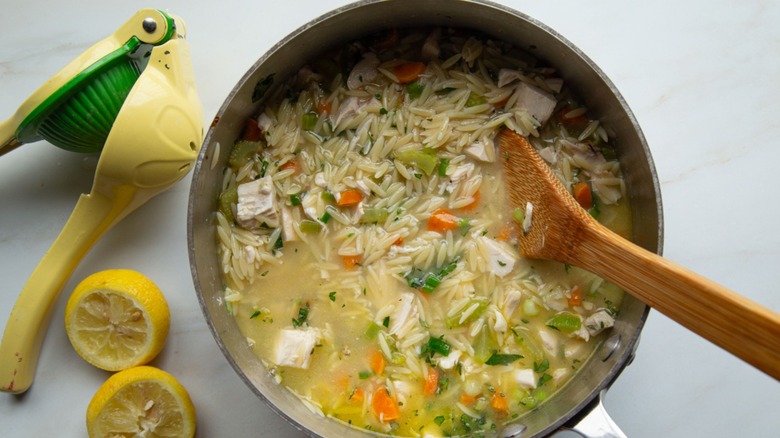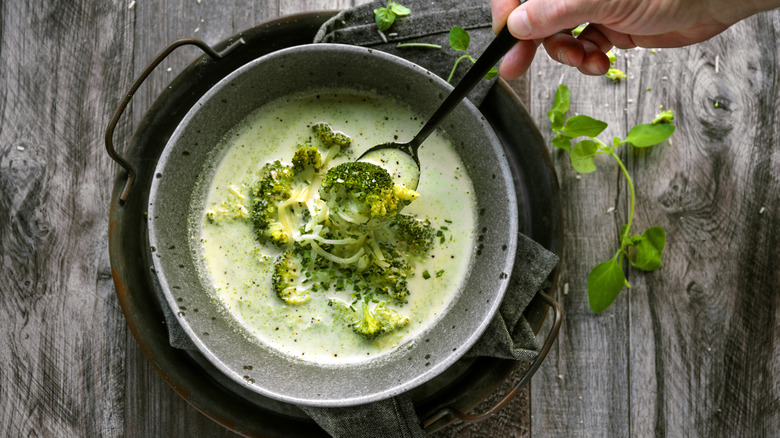Lemon Juice Can Give Your Soup The Extra Zest It Needs
Soup can be polarizing. Some people rave about the warmth and comfort a hearty bowl of soup can bring, while others view it as bland, boring, and lacking substance. If you find yourself less than enthusiastic about cooking or consuming soup for a meal, there's a good chance you haven't unlocked the depth of flavor a well-seasoned bowl can provide.
One of the best ways to brighten up your soup? Add some acid, especially in the form of citrus. While lemon is the star of the show in recipes like lemon chicken orso soup, it also pairs wonderfully with a classic chicken noodle. In this case, however, the lemon provides more of a flavor undertone that enhances other seasonings like thyme, parsley, and turmeric.
According to trained chef Leetal Arazi, who spoke with Real Simple, you can bring a "zesty flavor" to your soup simply by adding lemon. The juice alone will add a sharpness to the dish that balances out the other ingredients, but a more intense acid, like preserved lemon, can also incorporate some savory umami elements. This is because preserved lemons change during the fermentation process, becoming more concentrated and deep in flavor. Of course, if you can't get your hands on this paste, lemon juice is an easily accessible alternative that still provides the citrus your soup needs.
Always add an acid to your soups
Lemon is arguably even more essential in richer soups like wild mushroom and rice, curried split pea, or even white bean and bacon. This is because the delicate balance of flavor profiles requires that acidic, lemony zing to cut through the fats in the soup. Samin Nosrat unpacks this idea in her award-winning cookbook, "Salt Fat Acid Heat." She explains that these elements, when combined, strengthen a dish by using "salt to enhance, fat to carry, and acid to balance flavor."
Since wild mushroom soups are typically cream-based, there's a lot of fat incorporated into the recipe, along with the rich umami mushrooms. Similarly, using an array of spices or fatty cuts of meat can create an overbearing flavor. While salt can be added to balance out this richness, using lemon instead will actually be more effective. This is because the acid from the lemon cuts through the fat and balances out the spices. Using lemon zest on top of each bowl is also a great garnish that provides a zesty punch in every bite.
It's not uncommon to look at a soup recipe and assume the lemon would be out of place or wouldn't combine well with the other flavors, but adding lemon juice to an entire pot of soup likely won't be noticeable. Similar to salt, it will simply heighten the flavors you already taste, making it the perfect acid to incorporate into your dishes.

